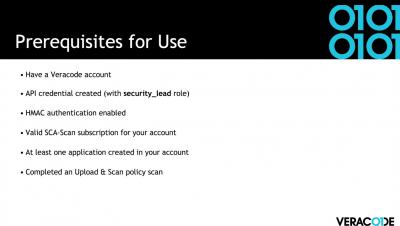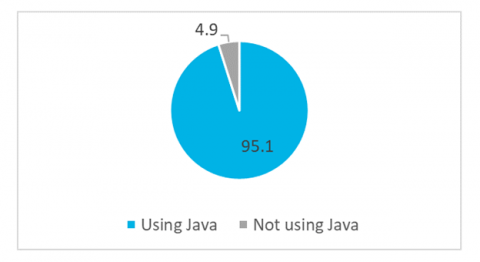Security | Threat Detection | Cyberattacks | DevSecOps | Compliance
April 2022
How to generate a Software Bill of Materials (SBOM) using Veracode Software Composition Analysis
How to Generate an SBOM in Veracode SCA
Emerging government regulations have driven the advancement of standards for securing software supply chains. The production of a Software Bill of Materials (SBOM) in a standard format is an increasing audit and compliance need for large organizations.
Veracode Named A Leader In The 2022 Gartner® Magic Quadrant For Application Security Testing For Ninth Consecutive Time
Just Because You Don't Use Log4j or Spring Beans Doesn't Mean Your Application is Unaffected
By now, you’re probably all aware of the recent Log4j and Spring Framework vulnerabilities. As a recap, the Log4j vulnerability – made public on December 10, 2021 – was the result of an exploitable logging feature that, if successfully exploited, could allow attackers to perform an RCE (Remote Code Execution) and compromise the affected server.
Veracode Acquires ML-Powered Vulnerability Remediation Technology From Jaroona GmbH
On the heels of our significant growth investment from TA Associates, we are pleased to announce our acquisition of auto-remediation technology from Jaroona. Jaroona’s intelligent remediation technology accelerates Veracode’s vision and strategy to automatically detect and remediate software vulnerabilities. Jaroona was recognized as a Gartner Inc. 2021 Cool Vendor for DevSecOps.
Testing OWASP's Top 10 API Security Vulnerabilities (Part 1)
Application Programming Interface (API) attacks are set to become one of the most prevalent cyberattacks with a broad target range. By nature, APIs expose application logic and sensitive data such as personally identifiable information (PII), causing APIs to become a target for attackers. In 2019, Gartner predicted that API hacks would become the most common form of cyberattacks in 2022. So how can teams stay ahead of API attacks?
Spring4Shell Vulnerability vs Log4Shell Vulnerability
On March 29, 2022, details of a zero-day vulnerability in Spring Framework (CVE-2022-22965) were leaked. For many, this is reminiscent of the zero-day vulnerability in Log4j (CVE-2021-44228) back in December 2021.





